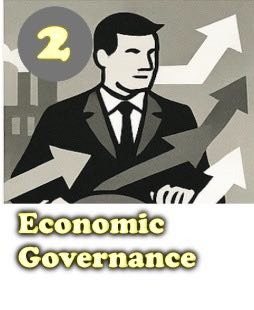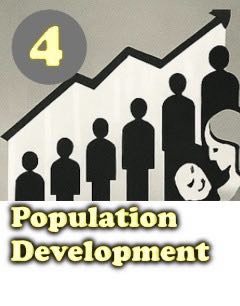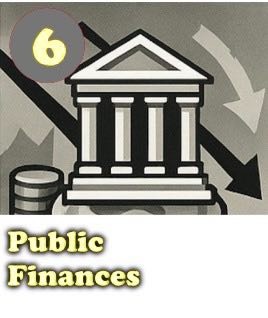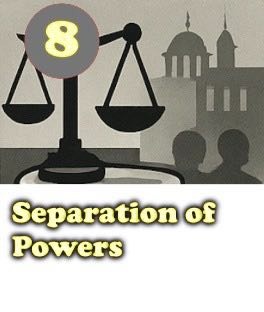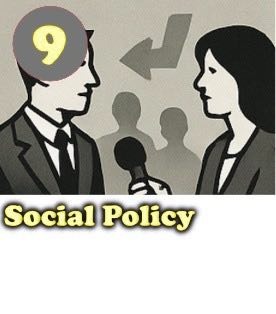Social-Libertarian
& Truly Free

Think free. Live fair.
Cooperate sensibly.


Social-Libertarian &
Truly Free


Think free. Live fair. Cooperate sensibly.
[ENG]



The Social-Libertarian Idea
Because Immortal
Principles Grant Immortality




The Social -Libertarian Idea



Because Immortal Principles Grant Immortality
With kind support from:








The Social-Libertarian
Freedom Index '25 (SolFI 25)
Clarifications
• Economic Freedom (1–10); measured by VAT & tariffs (tax-free subsistence level)
•Demographic Stability (1–10); measured by TFR
• Political Accountability (1–10); measured by full turnover in governments (federal & local, last 10 yrs)
• Political Freedom (1–10); measured by government spending ratio
• Forecast for the Next 10 Years
Where the torch of freedom shines, where it flickers, and where it is extinguished.
Avoid stagnation and decline through social-libertarian reforms!


Reach Out, Find Out, Prosper
Book Your Freedom Workshop
We help established parties to re-found themselves, free from their complexes.
A Personal Message from Max Ernst Publius*
Founder of the Social-Libertarian Movement for the Future of the West
Dear visitor,
My name is Max Ernst Publius – and if you are reading these lines, then perhaps you feel the same quiet sense of urgency that I do: that something at the heart of the West is changing – something too powerful to ignore, something concerning values too precious to lose.
I was born in 1985 and have so far been largely able to lead a happy and self-determined life. But I have also seen how bureaucracy, social inequality, and stagnation have quietly and gradually crept into people’s lives, hopes, and families.
This change is not happening by chance. It is based on a false dichotomy. On one side, an empty market individualism that has forgotten its social roots. On the other, a caring state that – with good or at least supposedly good intentions – disempowers. I founded the social-libertarian movement because I am convinced that we must overcome this false opposition.
I believe in a society that protects the weak without keeping them down. That trusts in free markets without submitting to destructive oligarchic power. That honors its Western roots without falling into nationalism. That creates freedom through solidarity – not against it.
This website is only a beginning. A draft. An invitation. We are working on concrete tools – such as the Social-Libertarian Freedom Index. But before programs and plans can emerge, we need stories – and convictions. This is mine. And I invite you to write yours alongside it.
Let us shape a West that is free, just, and truly future-ready – together.
In hope and determination,
Max Ernst Publius
Founder of the SLM
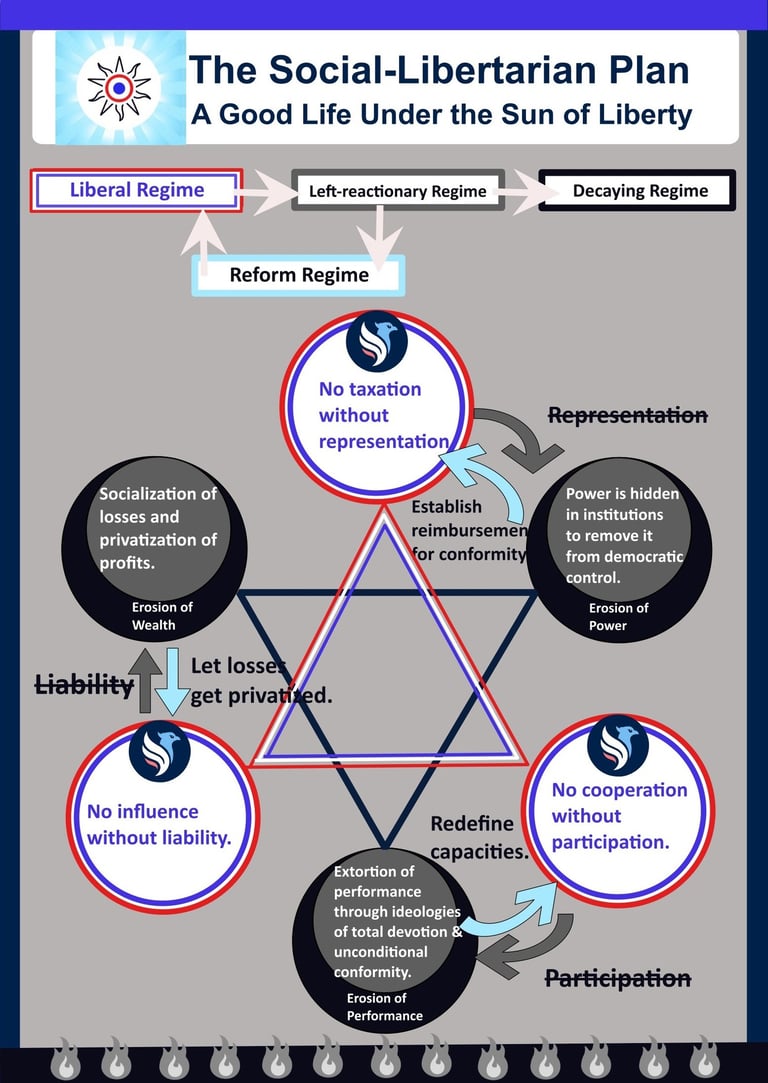

*Latin for "first servant of the people".
A Horrific World
Is a left-reactionary world.


Ideological Colonialism
Submission to absolute goals to obscure a decline caused by parasitism and corruption, and to justify subsistence taxation.


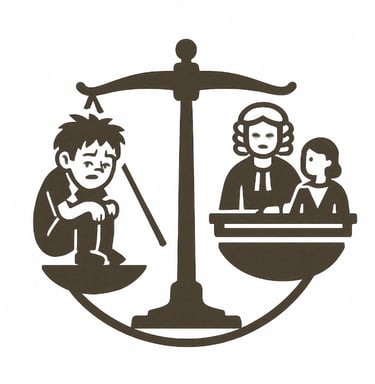



Exploitation
When one must increasingly justify the use of the fruits of one’s own labor, while the act of performing that labor is subject to ever more restrictive demands.
State Arbitrariness
When fundamental rights suddenly only apply to those who hold the "correct" political beliefs.
Division and Indifference
When exchanges no longer occur through private consent but are expected to conform to a society structure dictated from above.








A Better World
Is a Social-Libertarian World


Integrity
The social-libertarian idea.
On the path to freedom.
The social-libertarian idea is more than a philosophy – it is a departure.
A call to all who refuse to be patronized – and yet leave no one behind.






Balance
Indestructible by oligarchy.
We commit to defending against all those ideas that block progress –
against zero-progress institutions that monopolize power, drive up costs – and forget the human being. Social-libertarian, not left-reactionary. With us there will be no new hierarchy, no new planned economy under a different label.
Cooperation
We want: Responsibility. Openness. Dignity. Freedom rests on respect. Respect for competence. Respect for compassion. Only those who commit to freedom also commit to the future of the West. We are neither apologists for the market nor blind enemies of the state. We think further: Individual and community – not opponents, but partners.
A Shared Destiny
Together, we are successful. Because only together can we be strong – and remain free. We want neither chaos nor a central authority that controls and standardizes everything.
We know: Freedom requires integrity. Empathic, but not dulled by instinct. Courageous, but not naive. Indestructible by nihilism and anarchy. A social-libertarian world: Freedom. Dignity. Future. Together.
What Matters First and Foremost
Our Priorities
1. Sovereignty


The sabotage of disengagement from reform-resistant international institutions that do not meet the rule-of-law standards regarding democracy, separation of powers, and judicial independence must be made a punishable offense. Due to the severity of the offense, retroactive application is permissible.




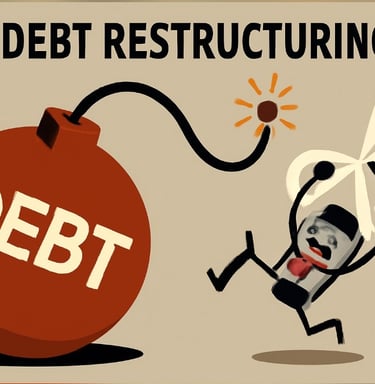

2. Prosperity
3. Security
4. Sustainability
Raising the standard of living and improving demographics by enhancing the ratio between income and asset prices.
Broadening social security and increasing civil servant salaries, including the reintroduction of tenure (pragmatization), without increasing overall costs.
Introduction of a debt restructuring mechanism for sovereign debt in order to push the inflation rate significantly below the growth rate, thereby revitalizing the economy.
Securing Results Through Values
Reappraisal of …


Instinct-reduced behavior
Violation of responsible ethical and long-term decision-making principles.






Sociopathy
Promotion of dissociative personality disorders in order to exploit the compassion for those who subsequently tend toward self-hatred and inferiority complexes, with the aim of making people compliant and helpless.
Structural corruption
Abuse of state institutions with the intent to enrich oneself at the expense of future generations.
Institutionalization
Establishment of an archive to document precisely this leftist-reactionary self-destruction, with which, in principle, all state bankruptcy creditors must cooperate in good faith to safeguard their claims.
"Learn more about the logic and goals of the social-libertarian movement."


Would You Prefer the Details?
Everyday Life in Decline
A Spiral into the Abyss


Difficult Decisions
Adaptation and self-destruction. Or? Leaving and starting over. Not an option for everyone. Fighting for a political turnaround. Trust in the established parties is lacking — if they weren’t all aligned, the problem wouldn’t even exist.






Violence
As a result, there is a growing turn toward simplistic and militant ideologies, or even toward crime itself. Innocent people are harmed in the process.
Isolation and Paralysis
In response, the authorities resort to more indoctrination and control. Mistrust and division paralyze public life and the economy.
Collapse and Declining Life Expectancy
The lack of public and private resources leads to supply shortages and the failure of critical infrastructure, not least in the medical sector.
The demand for devotion and unconditional conformity to abstract ideals—without regard for losses—is destructive and ultimately leads to violence. Disguising privileges as “subsidies” in order to gain pow- er and followers through money is, even for fiscal reasons, a strategy with an expiration date. At the latest, when the dividends of progress no longer keep pace with the hardships of the proclaimed progress, willingness to perform and social cohesion diminish.
Green parties function primarily as mediators of knowledge, opinions, and culture. However, this “fourth sector” lives off the surpluses of the primary sector (agriculture), the secondary sector (industry), and the tertiary sector (services). If the economic base is weakened through overtaxation and overregulation, the Greens must reconcile themselves with the thought that they will have to pay for their values themselves and make sacrifices, rather than being compensated for spreading them.
What reform-socialist and reform-green parties must openly tell their members


Prosperity is not a stock but a flow. Even the money in savings ac- counts exists only because it is lent, used by borrowers, and then re- paid. The primary claim to the social product, therefore, should not lie with those who hold guaranteed rights, but with those who must be motivated to provide performance and create prosperity.
The assumption that general assets like currencies can be “diluted” through debt without higher-value assets like stocks also being “dilut- ed” in consequence is historically untenable. In the long term, it is impossible to sustain sales and demand with an underpaid or insuffi- ciently solvent consumer base.
Institutions are not an end in themselves, and “non-punish- ment” as a form of reward is not a sustainable strategy for main- taining their validity; they must provide general benefit.
Conservatives after 2010 must accept that they themselves will scarcely experience the historical recognition they feel for all that has grown and long endured. Before 2010, conservatives were structure- conservatives; afterward, they transformed into normalization-conser- vatives. Decades of prosperity and stability convinced them that a pol- icy of consensual normalization would serve just as well as a policy of sustainable structuring. But errors in structures cannot be justified merely by pointing to good intentions, nor can they be glossed over in the long run by historical narratives.
What reform-conservative parties must openly tell their members


The selfish nature of man tempts him to pursue strategies of acquisi- tion based on violence or corruption. The fundamental insight into the superiority of an economy based on fair competition will not keep him from this. The tendency toward political self-interest also cannot be curbed by appeals to reason, but only through institutional safe- guards and balances of power. These, in turn, require state regulation and a shared social narrative.
If wealth not acquired in a liberal manner is treated uncritically as “liberal,” then the occasionally proclaimed liberalism is nothing more than a donkey-for-hire recruitment ideology, designed to shield un- justly accumulated wealth from competing political interests.
Radical individualism destroys the institutional foundations indis- pensable to a liberal economy. When the social motivation to work disappears due to wages being too low, or when labor becomes scarce due to insufficient renewal, negative capital returns can occur for years or decades. In such a case, the liberal path is to be content with maintaining capital in percentage terms rather than demanding a re- turn on it.
What reform-minded economic-liberal parties must openly tell their members


The claim that ethnic or other forms of homogeneity automatically lead to a “golden age” of harmony and efficiency is untenable.
Answering political problems with enemy images and schadenfreude is a coping strategy for the frustrated, but no step forward toward constructive solutions.
Those unwilling to go beyond mere rhetoric to develop their own solutions—and to accept effort and concessions in doing so—act as anesthetists for those harmed by grievances, but remain politically in- effective, whether out of convenience or incompetence.
What reform-minded national-populist parties must openly tell their members


Institutions willing to liberate themselves from their complexes and reorganize anew are warmly invited to join the social-libertarian movement for part of the journey. The visible sign of this willingness consists in incorporating the SLB logo into their own. May this indis- pensable commitment to the future of the West also be perceived as a commitment to the ongoing will to shape the future on the part of these institutions.
A Commitment to the Future of the West


Social-Libertarian Reforms
For Liberation, Renewal, & Social Reintegration
What Matters in the Long-Term
The entrepreneurial accumulation of wealth is not immoral but essential in order to enable future investments. Moreover, dynamic economic development is not possible without risky activities that involve the possibility of losses. Excessive appropriation of profits prevents the preparation for potential losses and thus hinders entrepreneurial activity itself. Wealth is only generated when the output of a production exceeds its costs. The state is obliged to keep the production costs caused by regulations low. Taxes, including comprehensive loss carry-forward options, must also be set at moderate levels.
In a digital economy, the observance of copyright and personal rights becomes increasingly important. Artificial intelligence, which is based on training data, should in the future only be operated under the condition of distributing appropriate royalties.
1.
Market Economy


The entrepreneurial accumulation of wealth is not immoral but essential in order to enable future investments. Moreover, dynamic economic development is not possible without risky activities that involve the possibility of losses. Excessive appropriation of profits prevents the preparation for potential losses and thus hinders entrepreneurial activity itself. Wealth is only generated when the output of a production exceeds its costs. The state is obliged to keep the production costs caused by regulations low. Taxes, including comprehensive loss carry-forward options, must also be set at moderate levels.
In a digital economy, the observance of copyright and personal rights becomes increasingly important. Artificial intelligence, which is based on training data, should in the future only be operated under the condition of distributing appropriate royalties.
1.
Market Economy


Since regulations act as cost drivers that hinder economic activity and thereby the creation of positive externalities, regulations should only be permitted to prevent significant negative externalities.
Crimes such as robbery, deception, fraud, etc., fall under the jurisdiction of criminal or civil courts. Safety precautions that can be taken by the affected parties themselves should not be imposed on entrepreneurs.
It is not the task of the state to force out small-scale economic structures from the market in the interest of higher economies of scale. Abuse of dominant market positions must be prevented, taking all circumstances into account.
The steering of innovation and the economy—apart from the realm of national military defense—is solely the responsibility of free enterprise.
2.
Economic Governance


If regulatory burdens impair international competitiveness, the state is obliged to impose tariffs on foreign products produced under lower standards or to provide compensation in the form of subsidies.
International competition must be permitted based on considerations of overall societal welfare. Therefore, it may be necessary to protect a high wage level by restricting immigration, while it may be impermissible to aim at depressing wage levels by promoting immigration.
The acquisition and maintenance of pricing power through technological advantage should be encouraged via fair international relations—not through state-managed economies or the paternalism of teaching and research.
3.
Free Trade


The strategy of planned immigration to counteract aging should be avoided insofar as such immigration can only be achieved through illegitimate and destabilizing interventions in the countries of origin.
Instead, a pronatalist policy should be prioritized, particularly through the creation of jobs aligned with family life. The resulting burdens, such as reduced economic dynamism, even declining levels of prosperity, and necessary adjustments in ownership structures, must be accepted in the interest of long-term stable and sustainable development.
4.
Population Development


The demographic subsistence minimum—which especially includes the means necessary for the acquisition of residential property—must be entirely exempt from direct or indirect taxation.
Otherwise, a work obligation akin to slavery would be enforced through the instruments of pauperization and precarization, which would only lead to more poverty and precarity.
5.
Tax Policy


If an unexpectedly poor economic development leads to a shortfall in state revenues, this shortfall must not be compensated by an undue increase in the tax burden. Instead, creditors must be referred to a reduction of their claims. Maintaining the solvency of the state is not an end in itself.
If a state bankruptcy proves necessary, it must be managed with social considerations in mind. Creditors' participation in any future positive developments must be ensured by freezing currently non-disbursable funds and claims—without significant inflation risk—into escrow accounts, rather than cancelling them outright.
6.
Public Finances


The Christian commandment of charity was, during times of stronger religious fervor, naturally associated with personal duties of almsgiving and assistance. It was only in the course of state development that these duties were transferred to public institutions and corresponding social administrations. To the extent that these administrations prove to be financially unsustainable, a revival of the original personalized obligations of charity and aid should be considered. In doing so, current welfare regulations that focus on personal responsibility and self-reliance should be integrated as effectively as possible.
Once a certain level of net wealth is attained, there should automatically be an obligation to establish and operate charitable foundations or educational institutions. The specific scope of services provided should be left to the discretion of the founders, provided a minimum standard is maintained. Provisions should also be made for the formation of donor associations.
The social security contributions collected from below-average incomes over the past ten years are to be reimbursed by the state and offset as far as possible through supplementary foundations.
7.
Social Security


To prevent the merging of state power and financial interests into an all-dominating, oligarchic-ochlocratic creditor class, it is essential to turn the state and capital into counterbalancing forces. This means capital should be subject to an inheritance tax, the rate of which should be based on the average state spending ratio (state quota) over recent decades. It would be counterproductive to include in this tax the kind of capital tied to individual or family enterprises that depend on exceptional intelligence or skill.
8.
Separation of Powers


It is not the state's role to protect certain groups of citizens from emotional distress by educating all others accordingly, as this infringes on civil rights such as freedom of speech and freedom of conscience and is therefore incompatible with a liberal-democratic order. Nonetheless, regulations must be enacted to prevent serious offenses against honor or morality, provided the related moral and honor-related sensitivities serve a particular purpose in supporting social order. In particular, prostitution and pornography should be largely suppressed.
Consciousness-shaping efforts beyond that can be pursued through balanced media reporting and promoted by civil society organizations. The state guarantees the equality of its citizens by treating them equally regardless of irrelevant personal characteristics and, in particular, by ensuring equality before the law. Positive discrimination is only permissible if it produces a general benefit—especially for those affected by it. If such benefits have not materialized in the past, the state must take responsibility and provide appropriate compensation.
9.
Social Policy


Neither a particularly homogeneous population nor a tribal society is a value to be promoted by the state—nor, conversely, is a particularly heterogeneous society—so long as a just and functioning state can exist independently of these factors in the enlightened self-interest of all citizens. Immigration of individuals who, due to a lack of proper socialization, cannot be presumed to share this enlightened self-interest should be avoided as far as possible.
Persons who share the values of the destination state should be actively encouraged to emigrate to it, provided that the destination state offers better conditions for realizing the ideals of a socio-libertarian society than their country of origin.
The fate of those who choose to perish as wolves among wolves is tragic—but even more tragic is the fate of those who never had a choice.
10.
Immigration and Emigration


2.
Economic Governance
Since regulations act as cost drivers that hinder economic activity and thereby the creation of positive externalities, regulations should only be permitted to prevent significant negative externalities.
Crimes such as robbery, deception, fraud, etc., fall under the jurisdiction of criminal or civil courts. Safety precautions that can be taken by the affected parties themselves should not be imposed on entrepreneurs.
It is not the task of the state to force out small-scale economic structures from the market in the interest of higher economies of scale. Abuse of dominant market positions must be prevented, taking all circumstances into account.
The steering of innovation and the economy—apart from the realm of national military defense—is solely the responsibility of free enterprise.


3.
Free Trade
If regulatory burdens impair international competitiveness, the state is obliged to impose tariffs on foreign products produced under lower standards or to provide compensation in the form of subsidies.
International competition must be permitted based on considerations of overall societal welfare. Therefore, it may be necessary to protect a high wage level by restricting immigration, while it may be impermissible to aim at depressing wage levels by promoting immigration.
The acquisition and maintenance of pricing power through technological advantage should be encouraged via fair international relations—not through state-managed economies or the paternalism of teaching and research.


4.
Population Development
The strategy of planned immigration to counteract aging should be avoided insofar as such immigration can only be achieved through illegitimate and destabilizing interventions in the countries of origin.
Instead, a pronatalist policy should be prioritized, particularly through the creation of jobs aligned with family life. The resulting burdens, such as reduced economic dynamism, even declining levels of prosperity, and necessary adjustments in ownership structures, must be accepted in the interest of long-term stable and sustainable development.


5.
Tax Policy
The demographic subsistence minimum—which especially includes the means necessary for the acquisition of residential property—must be entirely exempt from direct or indirect taxation.
Otherwise, a work obligation akin to slavery would be enforced through the instruments of pauperization and precarization, which would only lead to more poverty and precarity.


6.
Public Finances
If an unexpectedly poor economic development leads to a shortfall in state revenues, this shortfall must not be compensated by an undue increase in the tax burden. Instead, creditors must be referred to a reduction of their claims. Maintaining the solvency of the state is not an end in itself.
If a state bankruptcy proves necessary, it must be managed with social considerations in mind. Creditors' participation in any future positive developments must be ensured by freezing currently non-disbursable funds and claims—without significant inflation risk—into escrow accounts, rather than cancelling them outright.


7.
Social Security
The Christian commandment of charity was, during times of stronger religious fervor, naturally associated with personal duties of almsgiving and assistance. It was only in the course of state development that these duties were transferred to public institutions and corresponding social administrations. To the extent that these administrations prove to be financially unsustainable, a revival of the original personalized obligations of charity and aid should be considered. In doing so, current welfare regulations that focus on personal responsibility and self-reliance should be integrated as effectively as possible.
Once a certain level of net wealth is attained, there should automatically be an obligation to establish and operate charitable foundations or educational institutions. The specific scope of services provided should be left to the discretion of the founders, provided a minimum standard is maintained. Provisions should also be made for the formation of donor associations.
The social security contributions collected from below-average incomes over the past ten years are to be reimbursed by the state and offset as far as possible through supplementary foundations.


8.
Separation of Powers
To prevent the merging of state power and financial interests into an all-dominating, oligarchic-ochlocratic creditor class, it is essential to turn the state and capital into counterbalancing forces. This means capital should be subject to an inheritance tax, the rate of which should be based on the average state spending ratio (state quota) over recent decades. It would be counterproductive to include in this tax the kind of capital tied to individual or family enterprises that depend on exceptional intelligence or skill.


9.
Social Policy
It is not the state's role to protect certain groups of citizens from emotional distress by educating all others accordingly, as this infringes on civil rights such as freedom of speech and freedom of conscience and is therefore incompatible with a liberal-democratic order. Nonetheless, regulations must be enacted to prevent serious offenses against honor or morality, provided the related moral and honor-related sensitivities serve a particular purpose in supporting social order. In particular, prostitution and pornography should be largely suppressed.
Consciousness-shaping efforts beyond that can be pursued through balanced media reporting and promoted by civil society organizations. The state guarantees the equality of its citizens by treating them equally regardless of irrelevant personal characteristics and, in particular, by ensuring equality before the law. Positive discrimination is only permissible if it produces a general benefit—especially for those affected by it. If such benefits have not materialized in the past, the state must take responsibility and provide appropriate compensation.


10.
Immigration and Emigration
Neither a particularly homogeneous population nor a tribal society is a value to be promoted by the state—nor, conversely, is a particularly heterogeneous society—so long as a just and functioning state can exist independently of these factors in the enlightened self-interest of all citizens. Immigration of individuals who, due to a lack of proper socialization, cannot be presumed to share this enlightened self-interest should be avoided as far as possible.
Persons who share the values of the destination state should be actively encouraged to emigrate to it, provided that the destination state offers better conditions for realizing the ideals of a socio-libertarian society than their country of origin.
The fate of those who choose to perish as wolves among wolves is tragic—but even more tragic is the fate of those who never had a choice.


Max Ernst Publius
Willkommen bei SLI, der sozial-libertären Bewegung, die sich für eine zukunftsorientierte Vision des Westens einsetzt und Freiheit sowie soziale Gerechtigkeit fördert.


















